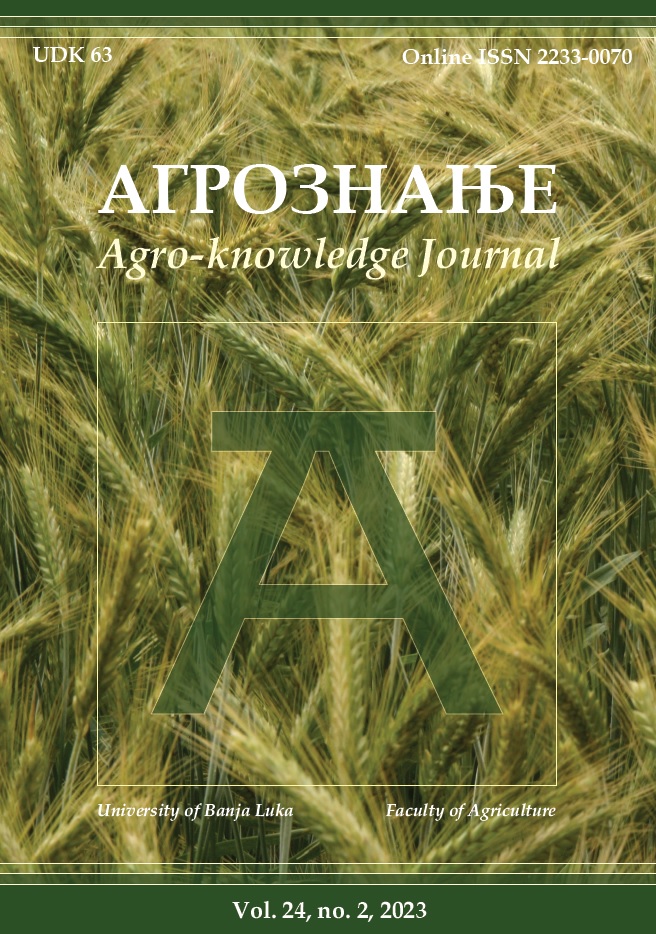Morphological diversity of onion genetic resources at the Agricultural Institute of Slovenia
DOI:
https://doi.org/10.7251/AGREN2304237SAbstract
Onion is an important vegetable crop grown for its pungent bulbs and aromatic leaves. Onion genetic resources collected in the Slovenian Plant Gene Bank at the Agricultural Institute of Slovenia were evaluated for the first time using various morphometric traits. Using the prescribed descriptors (UPOV, CPVO) for Allium cepa spp., a collection of 61 onion accessions and varieties grown in the experimental fields of the Infrastructure Centre Jablje in 2022 was described. For each onion genetic resource, a total of thirteen quantitative (numerical) and qualitative descriptors were evaluated on the bulbs: bulb size, bulb height, bulb diameter, ratio height/diameter, position of maximum diameter, width of the neck, shape in longitudinal section, shape of stem end, shape of root end, base colour of dry skin, intensity of base colour of dry skin, coloration of epidermis of fleshy scales, and dry matter content. The results showed significant differences between onions in the collection in terms of bulb size (73.7 ± 26.0 g), bulb height (46.3 ± 14.2 mm), bulb diameter (36.7 ± 6.8 mm), bulb shape (predominant transverse medium elliptic), and colour of dry skin (brown, pink, red, purple). The highest coefficients of variation were observed for bulb size (35.3%) and height/ diameter ratio (32.6%) and the lowest for dry matter content (8.6%). The data obtained and the variability of the traits studied indicate that these onion accessions require further genetic analysis to identify the best candidates for future breeding programmes.

